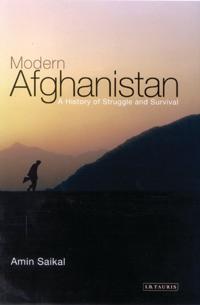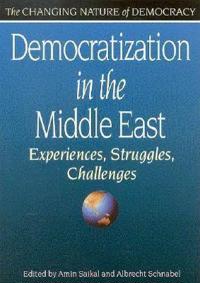Rise and Fall of the Shah, The: Iran from Autocracy to Religious Rule (Pocket)
avAmin Saikal
ISBN: 9780691140407 - UTGIVEN: 2009-02-09Modern Afghanistan (Häftad)
avAmin Saikal
ISBN: 9781780761220 - UTGIVEN: 201206Afghanistan's recent history is a sad one: Soviet invasion in 1979; Pakistan-backed internal conflict in the 1980s; the Taliban regime; and then the US invasion and the multi-national occupation after the events of 11 September 2001. Why does Afghanistan remain so vulnerable to domestic instability,[...]
Democracy and Reform in the Middle East and Asia: Social Protest and Authoritarian Rule After the Arab Spring (Inbunden)
avAmin Saikal
ISBN: 9781780768069 - UTGIVEN: 2013-12The protests that swept across the Middle East and North Africa in late 2010 and 2011 confounded long-time observers of the region, in both the media and academia. After addressing the conditions in the Middle East and North Africa that produced these attempts at revolution, Amin Saikal and Amitav A[...]
Modern Afghanistan (Pocket)
avAmin Saikal
ISBN: 9781845113162 - UTGIVEN: 2006-10-09Afghanistan's history is a sad one: Soviet invasion in 1979; Pakistan-backed internal conflict in the 1980s; the Taliban regime and then the US invasion after the catastrophe of September 11th. Why does Afghanistan remain so vulnerable to domestic instability, foreign intervention and ideological ex[...]
Democratization in the Middle East (Häftad)
avAmin Saikal, United Nations University, Albrecht Schnabel
ISBN: 9789280810851 - UTGIVEN: 200302Democratization in the Middle East addresses a number of key issues determining the success or failure of sustainable democratization in the region. With the exception of Israel, the constituent states cannot yet guarantee a path toward sustainable democracy. If anything, movement toward political, [...]
Medical Sociology on the Move (Inbunden)
avAmin Saikal, United Nations University, Albrecht Schnabel
ISBN: 9789400761926 - UTGIVEN: 201304This book provides readers with a single source reviewing and updating sociological theory in medical or health sociology. The book not only addresses the major theoretical approaches in the field today, it also identifies the future directions these theories are likely to take in explaining the soc[...]











